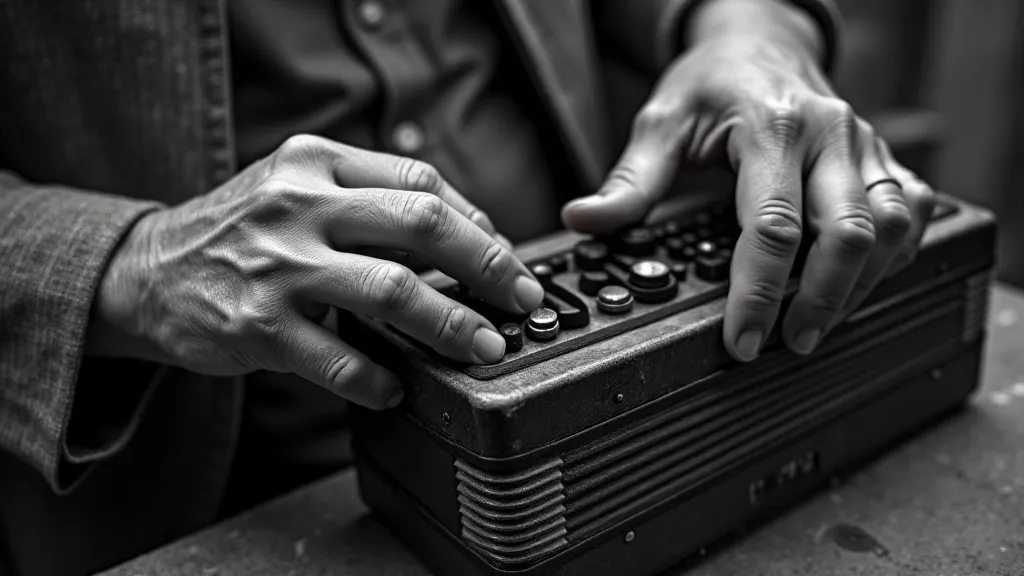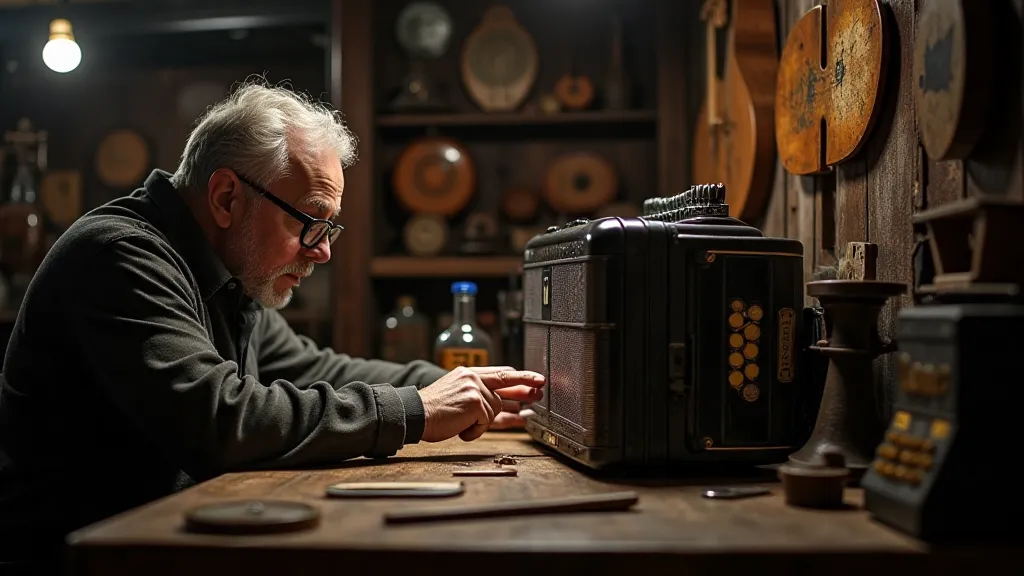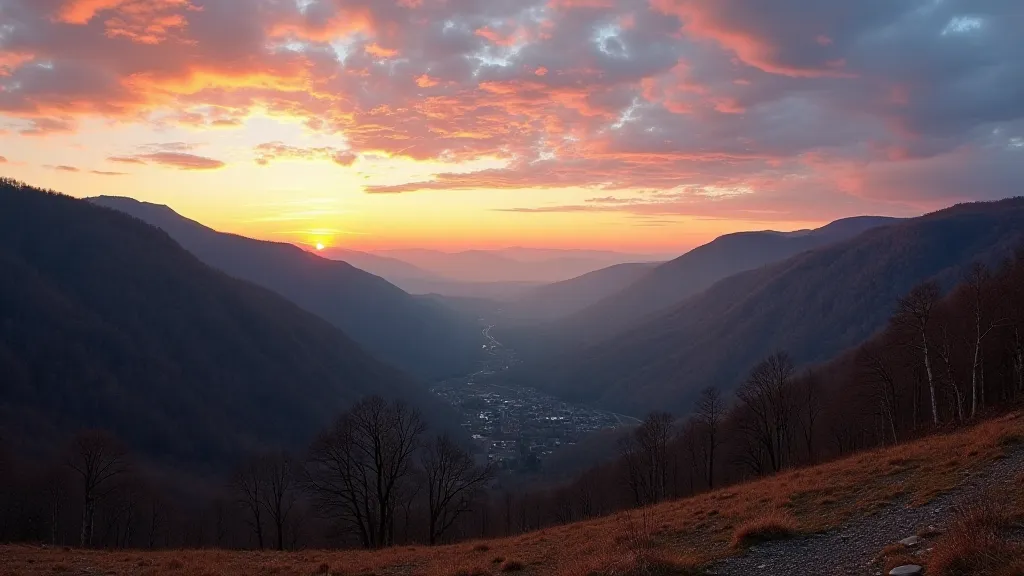The Grammar of Respect: Address Terms and Social Hierarchy in Appalachia
The Appalachian Mountains, a realm of misty peaks and deep valleys, hold a history woven as intricately as the patterns on a hand-stitched quilt. It's a history etched not just in the landscape, but also in the cadence of speech, in the subtle shifts of pronunciation, and, perhaps most profoundly, in the way people address one another. The language of Appalachia is a living document, continually evolving, yet fiercely guarding traditions. One of the most fascinating aspects of this linguistic heritage is the significance placed on address terms – “ma’am,” “sir,” “young man,” and countless others – which serve as more than just polite formalities; they act as an intricate grammar of respect, subtly reinforcing social hierarchies and demonstrating deference within these communities. It’s a system that, while often overlooked by outsiders, speaks volumes about the values cherished within the mountains.
My grandfather, a taciturn man of few words, instilled in me the importance of these terms from a young age. I remember being corrected, gently but firmly, for calling an older neighbor by his first name. “You show respect, boy,” he’s say, his eyes holding a quiet intensity. “’Mr. Johnson’ is what you call him.” It wasn’t about formality for formality’s sake; it was about acknowledging experience, wisdom, and place within the community. This ingrained respect, this ingrained understanding of the subtle power of words, is a defining characteristic of Appalachian culture.
The Roots of Deference
The foundation for this formal address system can be traced back to the settlers who initially populated the Appalachian region. Primarily from Ulster, Scotland, and England, these pioneers brought with them a culture steeped in hierarchical social structures. The rigid class system of the British Isles demanded strict adherence to titles and honorifics, and this tradition migrated across the Atlantic, finding fertile ground in the relatively isolated communities of Appalachia. The distances between farms, the reliance on mutual support and kinship, and the relatively limited interaction with outside influences reinforced these established norms.
Furthermore, the economic realities of Appalachian life for centuries – characterized by subsistence farming and limited access to education – further solidified this structure. Older individuals, having weathered the hardships of mountain life, naturally commanded respect. Their experience in farming, hunting, and navigating the harsh environment made them invaluable sources of knowledge. Their wisdom wasn't just appreciated; it was essential for survival. Addressing them with deference was a practical acknowledgement of that value. It was a way of saying, "I recognize your knowledge, and I seek your guidance."

Beyond 'Ma'am' and 'Sir': A Tapestry of Terms
While 'ma'am' and 'sir' are the most widely recognized terms of respect, the Appalachian dialect boasts a far richer vocabulary of address. Terms like ‘aunt’ and ‘uncle,’ regardless of familial relation, were often used to show deference to older neighbors and community members. This use wasn’t simply a form of politeness; it signified an implied kinship, a sense of shared community and belonging. 'Miss' was reserved for unmarried women, highlighting their status and deserving of a degree of respect.
The use of 'young man' isn’t necessarily derogatory. It’s a marker of respect for younger men, acknowledging their potential and implicitly encouraging them to strive for excellence. It’s a recognition of their emerging status and a silent endorsement of their future contributions to the community. Conversely, addressing an older man as 'boy' wasn't intended to be disrespectful but rather a familiar way of acknowledging his seniority, often used amongst close acquaintances or family members. The nuances were subtle, reliant on context, tone, and shared understanding.
The Crumbling of Formality?
Like all cultures, Appalachian communities have not remained static. Increased exposure to mainstream American culture, coupled with generational shifts, has undoubtedly led to a gradual erosion of this formal address system. Younger generations are often more inclined to use first names, even with individuals they’ve only just met. While this represents a degree of cultural change, the underlying values of respect and deference haven't disappeared entirely. They simply manifest in different ways – perhaps through acts of kindness, a willingness to lend a hand, or a genuine interest in the experiences of others.
My cousin, a young woman recently returned to the mountains after years away, expressed a sentiment I'm hearing more and more often. "I still feel compelled to use 'sir' and 'ma'am,' but I notice some of the younger folks don't," she confessed. "It feels almost… awkward sometimes. But I also know that it's important. It's a way of connecting to my heritage.” It’s a tension between tradition and modernity, a delicate balance that defines much of contemporary Appalachian life.
The Craftsman’s Respect: An Accordion’s Tale
Thinking about the grammar of respect, I'm reminded of an antique accordion I recently had restored. It was a beautiful instrument, made by a German craftsman over a century ago – a testament to his skill and artistry. The man who restored it, Mr. Abernathy, is a true artisan; his workshop a haven for forgotten treasures. He treated that accordion with a reverence that mirrored the respect I witnessed growing up. He’d spend hours painstakingly cleaning each key, carefully replacing damaged reeds, and meticulously repairing the intricate bellows.

He didn't just fix the accordion; he honored it. He understood that it wasn't just a collection of parts; it was a vessel of history, a tangible link to the past. And in his meticulous care, he showed a deep respect for the original craftsman, for the artistry that had created the instrument, and for the cultural significance it held.
Preserving the Echoes
The subtle shifts in address terms within Appalachian communities serve as a poignant reminder of the importance of cultural preservation. These aren’t just grammatical quirks; they are windows into a worldview shaped by history, circumstance, and a deep-seated respect for tradition. While the language of Appalachia continues to evolve, it’s crucial to recognize and appreciate the significance of these ingrained customs – the "grammar of respect" that binds communities together and offers a unique insight into the heart and soul of the mountains. Like the careful restoration of a vintage accordion, safeguarding these linguistic nuances allows us to connect with the enduring legacy of Appalachia – a legacy that echoes through the valleys and resonates within the hearts of its people.






